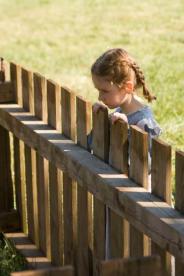I’m currently savoring–as slowly as possible, as it is a short book–Mark Doty’s “World into Word” essays in The Art of Description. The text has been gently pushing my thoughts back toward matters of poetry.
I always think of Doty’s style, in prose and poetry, as precise and almost studied, though the studied-ness doesn’t feel overbearing but reflective; a naturalness remains that keeps the poems “hospitable” (as he puts it).
In his essay on Bishop, “The Tremendous Fish,” Doty examines the various forms of observation and focus or perspective that contribute to any work of art, although here he is of course honing in on the lyric state of mind. These passages seem to me to hearken to Bachelard (see here and here) on the temporal:
What is memory but a story about how we have lived? …there is another sort of temporality, too, which is timelessness. In this lyric time we cease to be aware of forward movement…it represents instead a slipping out of story and into something still more fluid, less linear: the interior landscape of reveries. This sense of time originates in childhood, before the conception of causality…
Self-forgetful concentration is precisely what happens in the artistic process–an absorption in the moment, a pouring of the self into the now. We are, as Dickinson days, ‘without the date, like Consciousness or Immortality.’ That is what artistic work and child’s play have in common; both, at their fullest, are experiences of being lost in the present, entirely occupied.
This is, in addition to relating to Bachelard’s concepts on reverie, a form of mindfulness that would not be out of place in Zen and would be recognizable to any artist familiar with the creative “zone.”
I’m reminded of a popular colloquialism of the 1970s: “zoning out.” Generally, the phrase signified not paying attention, being slightly stoned, out of touch: negative connotations. Yet there were people who used the term in a more positive way to mean “in the zone”–an acceptable, if “flaky,” zinging of the mind into a calm or creative space.
A space where poets might wander in “self-forgetful concentration.”
~
Let’s go…

Oh, Mark Doty’s book sounds as if it will be in my reading stack sooner than later. “An absorption in the moment, a pouring of the self into the now…lost in the present, entirely occupied.” As you say, let’s go.
I remember those ’70s days, in both ways that you mention, yet my preference was for “zoning out” on life as it comes. It would be over forty years before I began writing about bringing Zen into the every day but then it has taken me that long to appreciate being “entirely occupied.” Really enjoyed this post, Ann, such a lyrical quality in every sentence. .
Karen
LikeLike
Thanks! (I was occasionally guilty of zoning out, too…mostly because I was daydreaming!)
LikeLike
[…] https://annemichael.wordpress.com/2014/01/16/lyric-time/ […]
LikeLike